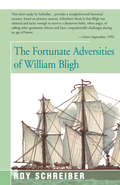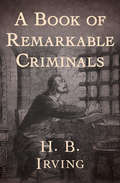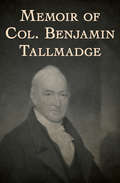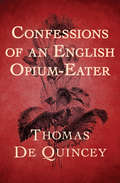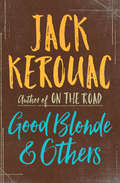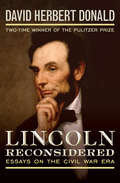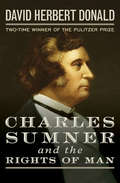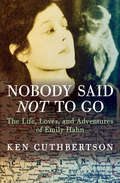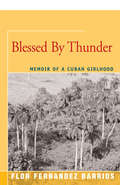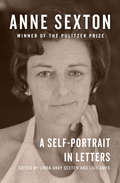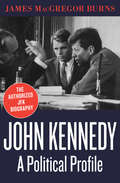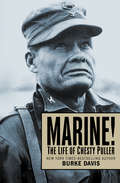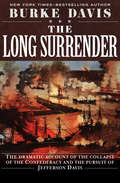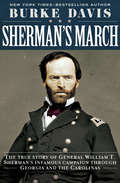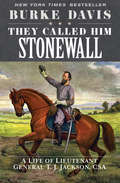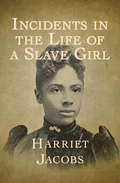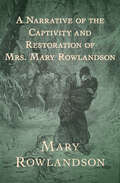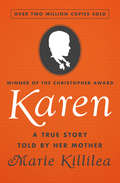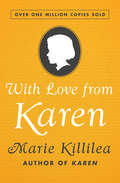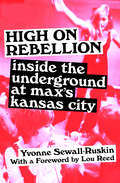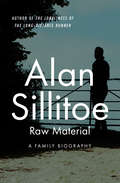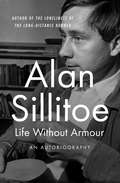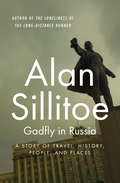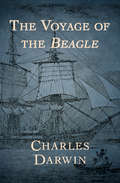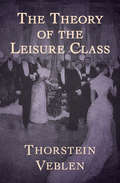- Table View
- List View
The Fortunate Adversities of William Bligh
by Roy SchreiberWilliam Bligh is best known as the cause of the mutiny on the Bounty. He was also the victim of two other mutinies. Yet when he died he was a vice-admiral of the British navy. How was that possible? If ever a person learned to profit from adversity, it was William Bligh.
A Book of Remarkable Criminals: Large Print (Law, Crime And Law Enforcement Ser.)
by H. B. IrvingThis classic study profiles serial killers, gentleman murderers, and every stripe of madman in between Benjamin Pitezel should never have trusted H. H. Holmes. In 1894, the two men conspired to fake Pitezel’s death for the sake of a $10,000 insurance settlement. But Holmes decided murder would be simpler. He killed his partner, kidnapped three of his children, and tried to claim the insurance money as his own. The scheme unraveled and Holmes killed the children as well. When he was caught, the police had no idea they had captured one of the vilest murderers in American history. The Pitezel murders were only the tip of a very bloody iceberg. The chilling case of H. H. Holmes—famously recounted in Erik Larson’s award-winning bestseller, The Devil in the White City—is but one of the true crime tales contained in this remarkable work. Author H. B. Irving understood the public’s lurid fascination with murder, and in this seminal study he shows readers the many faces of evil.
Memoir of Col. Benjamin Tallmadge: Prepared By Himself, At The Request Of His Children (classic Reprint)
by Benjamin TallmadgeGuerilla, rebel, politician, spy--Col. Benjamin Tallmadge lived one of the most remarkable lives of the American Revolution When British troops defeated the Continental Army on Long Island, Gen. George Washington was forced to abandon New York in order to save the revolution. The British established their headquarters in New York City, beginning an occupation that would last the length of the war. Priceless intelligence flowed through the city's harbor, and Washington wanted to claim it as his own. To Benjamin Tallmadge, a young officer of the Continental Army, the general assigned an impossible mission: Infiltrate New York, establish a spy network, and report everything the British know. Throughout the war, Tallmadge and his spies collected intelligence on troop movements, sneak attacks, and the treachery of Benedict Arnold. Nearly two and a half centuries later, the heroic exploits of the Culper Spy Ring serve as the inspiration for the acclaimed TV series Turn: Washington's Spies and the video game Assassin's Creed III. In this lively and engaging memoir, the days of revolution are remembered by a patriot who fought in the shadows--and helped redefine the nature of espionage.
Confessions of an English Opium-Eater: And Suspiria De Profundis - Primary Source Edition
by Thomas De QuinceyA timeless memoir of drug addiction from one of the leading intellectuals of the Victorian age At first, Thomas De Quincey found opium to be a harmless pleasure. A twenty-year-old intellectual living in nineteenth-century London, De Quincey took laudanum sparingly, spacing out his doses so their effect would not be dulled. But after years of casual use, intense stomach pains caused him to rely on the drug more and more, until he was taking opium daily, and living in a world divided between hallucinatory bliss and aching physical torment. De Quincey's account of his addiction made him a celebrity. His rhapsodies of hallucination influenced generations of authors, from Poe and Baudelaire to Jorge Luis Borges, and warned countless readers of the dangers of drug dependency.
Good Blonde & Others
by Jack KerouacBeat Generation great Jack Kerouac traverses the vast landscape of American counterculture in this raucous and insightful collection <P><P>In these collected articles, essays, and wild autobiographical tales, Jack Kerouac, author of On the Road, leads readers down the highways and through the myriad subcultures of mid-twentieth-century America, guiding them along with his ingenious observations and brilliant command of language. He cruises to San Francisco high on Benzedrine with a barefoot blond model in a white bathing suit; traipses from New York to Florida with photographer Robert Frank and a $300 German camera; takes a bus ride along the edge of a precipice in Montana; and revels in the swampy blues of an old Southern bum at a Des Moines diner. On a journey of the mind, Kerouac courses through the philosophy, origins, and dreams of the Beats, those "crazy illuminated hipsters" of post-war America; describes his theory of experimental prose with the "Essentials of Spontaneous Writing"; and gives a tour of the San Francisco Renaissance, pointing out the new American poets who are "childlike graybeard Homers singing on the street." This sweeping portrait of the art, sounds, and people of a nation in transition could only be told with Kerouac's inimitable wisdom and charm.
Lincoln Reconsidered: Essays on the Civil War Era (Vintage Civil War Library)
by David Herbert DonaldA groundbreaking reassessment of the life and times of America's most revered president from the Pulitzer Prize-winning author of Lincoln First published in 1956 and revised and updated for the twenty-first century, Lincoln Reconsidered is a masterpiece of Civil War scholarship. In a dozen eloquent, witty, and incisive essays, the author of the definitive biography of Abraham Lincoln offers a fresh perspective on topics previously shrouded in myth and hagiography and brings the president's tough-mindedness, strategic acumen, and political flexibility into sharp focus. From Lincoln's patchwork education to his contradictory interpretations of the Constitution and the legacy of the Founding Fathers, David Herbert Donald reveals the legal mind behind the legend of the Great Emancipator. "Toward a Reconsideration of the Abolitionists" sheds new light on the radicalism of the antislavery movement, while "Herndon and Mary Lincoln" brilliantly characterizes the complicated relationship between two of the president's closest companions. "Getting Right with Lincoln" and "The Folklore Lincoln" draw on the methods of cultural anthropology to produce a provocative analysis of Lincoln as symbol. No historian has done more to enhance our understanding of Lincoln's presidency and the causes and effects of the Civil War than Donald. Lincoln Reconsidered is an entertaining and accessible introduction to his work and a must-read for every student of American history.
Charles Sumner and the Rights of Man
by David Herbert DonaldThe second volume of David Herbert Donald's Pulitzer Prize-winning biography of the most compelling senator of the Civil War era In the enthralling sequel to Charles Sumner and the Coming of the Civil War, acclaimed historian David Herbert Donald examines the life of the Massachusetts legislator from 1860 to his death in 1874. As a leader of the Radical Republicans, Sumner made the abolition of slavery his primary legislative focus--yet opposed the Thirteenth, Fourteenth, and Fifteenth Amendments to the US Constitution for not going far enough to guarantee full equality. His struggle to balance power and principle defined his career during the Civil War and Reconstruction, and Donald masterfully charts the senator's wavering path from fiery sectarian leader to responsible party member. In a richly detailed portrait of Sumner's role as chairman of the Senate Committee on Foreign Relations, Donald analyzes how the legislator brought his influence and political acumen to bear on an issue as dear to his heart as equal rights: international peace. Authoritative and engrossing, Charles Sumner and the Rights of Man captures a fascinating political figure at the height of his powers and brings a tumultuous period in American history to vivid life.
Nobody Said Not to Go: The Life, Loves, and Adventures of Emily Hahn
by Ken CuthbertsonThe captivating biography of the trailblazing New Yorker journalist and feminist who traveled the world reporting on the tumultuous cultural and political currents of the twentieth century Emily Hahn first challenged traditional gender roles in 1922 when she enrolled in the University of Wisconsin's all-male College of Engineering, wearing trousers, smoking cigars, and adopting the nickname "Mickey." Her love of writing led her to Manhattan, where she sold her first story to the New Yorker in 1929, launching a sixty-eight-year association with the magazine and a lifelong friendship with legendary editor Harold Ross. Imbued with an intense curiosity and zest for life, Hahn traveled to the Belgian Congo during the Great Depression, working for the Red Cross; set sail for Shanghai, becoming a Chinese poet's concubine; had an illegitimate child with the head of the British Secret Service in Hong Kong, where she carried out underground relief work during World War II; and explored newly independent India in the 1950s. Back in the United States, Hahn built her literary career while also becoming a pioneer environmentalist and wildlife conservator. With a rich understanding of social history and a keen eye for colorful details and amusing anecdotes, author Ken Cuthbertson brings to life a brilliant, unconventional woman who traveled fearlessly because "nobody said not to go." Hahn wrote hundreds of acclaimed articles and short stories as well as fifty books in many genres, and counted among her friends Rebecca West, Ernest Hemingway, Dorothy Parker, James Thurber, Jomo Kenyatta, and Madame and General Chiang Kai-shek.
Blessed by Thunder: Memoir of a Cuban Girlhood
by Flor Fernandez Barrios"Flor Fernandez Barrios ushers readers into startling proximity to a Cuba seen through the eyes of a woman whose childhood was both shaped and shattered by the beautiful island. The indelible quality of Barrios's observations, specific and true, make Blessed by Thunder an important chronicle of the Cuban experience." --The Bloomsbury Review "Fernandez's book is a visually rich portrait of a tumultuous era. Fernandez knows how to craft a compelling narrative best of all are [her] enchanting cast of characters." --The Miami Herald "Flor Fernandez Barrios reminds us what we can never forget, that ties to one's homeland endure. When she calls on her grandmother for strength in America, the invisible bonds of all our ancestors appear. This book holds healing words as we begin to restore our relations with Cuba." --Terry Tempest Williams "A stunning portrait of what binds life together despite our terrible tests. It is gorgeous in the telling. I could not put it down." --Joy Harjo
Anne Sexton: A Self-Portrait in Letters
by Anne Sexton Linda Gray Sexton Lois AmesA revealing collection of letters from Pulitzer Prize-winning poet Anne Sexton While confessional poet Anne Sexton included details of her life and battle with mental illness in her published work, her letters to family, friends, and fellow poets provide an even more intimate glimpse into her private world. Selected from thousands of letters and edited by Linda Gray Sexton, the poet's daughter, and Lois Ames, one of her closest friends, this collection exposes Sexton's inner life from her boarding school days through her years of growing fame and ultimately to the months leading up to her suicide. Correspondence with writers like W. D. Snodgrass, Robert Lowell, and May Swenson reveals Sexton's growing confidence in her identity as a poet as she discusses her craft, publications, and teaching appointments. Her private letters chart her marriage to Alfred "Kayo" Sexton, from the giddy excitement following their elopement to their eventual divorce; her grief over the death of her parents; her great love for her daughters balanced with her frustration with the endless tasks of being a housewife; and her persistent struggle with depression. Going beyond the angst and neuroses of her poetry, these letters portray the full complexities of the woman behind the art: passionate, anguished, ambitious, and yearning for connection.
John Kennedy: A Political Profile
by James Macgregor BurnsThe authorized biography of John F. Kennedy offers a fresh and candid look at what shaped the man America came to love and admire, just as he was on the cusp of the presidency Historian, political scientist, and Pulitzer Prize-winning author James MacGregor Burns wrote Roosevelt: The Lion and the Fox, the first volume of his highly acclaimed biography of FDR, in 1956. Two years later, Burns ran for a seat in Congress and became close friends with John F. Kennedy, who was also campaigning throughout the state for reelection to the Senate. After Burns lost his election, he decided to write a biography of JFK. Without any restrictions, Kennedy granted his friend complete access to files, family records, and personal correspondence. The two men spoke at great length in Washington, DC, and at the Kennedy family compound on Cape Cod, and afterwards, Kennedy asked his relatives, friends, and political colleagues to talk openly with Burns as well. The result is a frank, incisive, and compelling portrait of Kennedy from his youth to his service in World War II and his time in Congress. While many political biographies--especially those of presidential candidates--intend to depict a certain persona, Burns would not allow anything other than his own perception to influence him. And so, John Kennedy concludes questioning whether JFK would make "a commitment not only of mind, but of heart" to the great challenges that lay ahead. (Burns would later admit that his subject did bring both bravery and wisdom to his presidency.) First published just as Kennedy was coming into the national spotlight, this biography gives a straightforward and exciting portrayal of one of the twentieth century's most important figures.
Marine!: The Life of Chesty Puller
by Burke DavisAn action-packed biography of the most decorated soldier in the history of the US Marine Corps"We are flanked on both sides by an enemy that outnumbers us 29:1. They can't get away from us now!"--Lewis B. "Chesty" Puller, USMC In the glorious chronicles of the US Marine Corps, no name is more revered than that of Lt. Gen. Lewis B. "Chesty" Puller. The only fighting man to be awarded the Navy Cross five separate times--a military honor second only to the Congressional Medal of Honor--he was the epitome of a professional soldier. A son of the South, descendant of Robert E. Lee, and cousin to George S. Patton, Puller began his enlisted career during World War I and moved up through the ranks as he proved his battlefield mettle in Haiti and Nicaragua, with the Horse Marines in Peking, in the Pacific Theater of World War II, and in the nightmarish winter engagements of the Korean War. Fearless and seemingly indestructible, adored by the troops he championed yet forced into early retirement by a high command that resented his "lowly" beginnings and unwillingness to play politics, Puller remains one of most towering figures in American military history. Bestselling military biographer Burke Davis paints the definitive portrait of this extraordinary marine hero.
The Long Surrender
by Burke DavisA panoramic and spellbinding history of the last days of the Confederacy and the flight, capture, and imprisonment of Jefferson Davis In April 1865, Richmond fell to the Union army and Gen. Robert E. Lee surrendered to his Northern counterpart, Ulysses S. Grant, at the Appomattox Court House. But the Civil War was far from over. Determined to keep Confederate dreams of secession alive, President Jefferson Davis and his cabinet fled the burning capital city. With Union troops in pursuit, the fugitives rallied loyalists across the South and made plans to escape to Cuba. In the aftermath of President Abraham Lincoln's assassination, a $100,000 bounty was placed on Davis's head. Finally captured in Irwinville, Georgia, the former US senator and secretary of war became a prisoner of the American government. The harsh treatment he received would inflame tensions between North and South for years to come. Meticulously researched and brilliantly told, The Long Surrender brings these dramatic events to vivid, unforgettable life and paints a fascinating portrait of Davis, one of history's most enigmatic figures. By shining a light on this forgotten chapter of the Civil War, bestselling author Burke Davis examines the lasting impact of America's bloodiest conflict on the national character.
Sherman's March: The First Full-length Narrative Of General William T. Sherman's Devastating March Through Georgia And The Carolinas (Vintage Civil War Library)
by Burke DavisA riveting and richly detailed account of the devastating military campaign that broke the back of the Confederacy in the final months of the Civil War In November 1864, just days after the reelection of President Abraham Lincoln, Gen. William T. Sherman vowed to "make Georgia howl." The hero of Shiloh and his 65,000 Federal troops destroyed the great city of Atlanta, captured Savannah, and cut a wide swath of destruction through Georgia and the Carolinas on their way to Virginia. A scorched-earth campaign that continues to haunt the Southern imagination, Sherman's "March to the Sea" and ensuing drive north was a crucial turning point in the War between the States. Weaving together hundreds of eyewitness accounts, bestselling author Burke Davis tells the story of this infamous episode from the perspective of the Union soldiers and the Confederate men and women who stood in their path. Eloquent, heartrending, and vastly informative, Sherman's March brilliantly examines one of the most polarizing figures in American military history and offers priceless insights into the enduring legacy of the Civil War.
They Called Him Stonewall: A Life of Lieutenant General T. J. Jackson, CSA (Classics Of War Reprint Ser.)
by Burke DavisThe New York Times-bestselling biography of the South's most brilliant and audacious military commander With the exception of Robert E. Lee, no Confederate general was more feared or admired than Thomas "Stonewall" Jackson. Once derisively known as "Tom Fool," Jackson was an innovative battlefield strategist who struck terror in the hearts of Union army commanders and inspired Confederate soldiers to victory after victory in the early days of the Civil War. A fanatically religious man, Jackson prayed at the start and conclusion of every battle--yet showed no mercy when confronting the enemy. Eccentric, enigmatic, and fiercely intelligent, he became the stuff of legend soon after he died from wounds suffered during the Battle of Chancellorsville; his untimely death would help to change the course of the conflict. Based on a wealth of first-person sources, including Jackson's private papers and correspondences, and the memoirs of family, friends, and colleagues, They Called Him Stonewall is a masterful portrait of the man behind the myth.
Incidents in the Life of a Slave Girl (Enriched Classics)
by Harriet JacobsTormented by her master, a young mother plots a daring escape, in this courageous and captivating slave narrative When her mother dies, six-year-old slave girl Linda Brent is sent to the big house, where she grows up serving a gentle mistress who teaches her to read and write. But the mistress's death brings about a sudden and terrible change in Linda's fortunes. Her lecherous new master torments Linda mercilessly, making her life a living hell. Unable to join her two young children in their escape to the North, Linda hides in the attic above her grandmother's house. For seven years, she waits for the opportunity to flee North Carolina and reunite with her son and daughter in the land of freedom. But when the chance finally comes, Linda discovers she has yet more pain to endure. Based on the true story of Harriet Jacobs's escape from the South, Incidents in the Life of a Slave Girl is one of American literature's most powerful indictments of the evils of slavery. This ebook has been professionally proofread to ensure accuracy and readability on all devices.
A Narrative of the Captivity and Restoration of Mrs. Mary Rowlandson: First Printed In 1682 At Cambridge, Massachusetts, & London, England. Now Reprinted In Facsimile; Whereunto Are Annexed A Map Of Her Removes, Biographical & Historical Notes, And The
by Mary RowlandsonCaptured by hostile natives, a Puritan woman in colonial New England must rely on her faith to survive When Mary Rowlandson awoke on February 10, 1675, the village of Lancaster, Massachusetts, was already on fire. For two hours, Rowlandson's family fought to protect their home from marauding Narragansett Indians. Finally, their little house was set ablaze, and the Rowlandsons fled into the open, where Mary and her three children were taken captive. So begins one of the most harrowing and unforgettable captivity narratives in the history of American literature. For eleven weeks, Mary and her surviving children traveled the wilderness with their captors, an arduous ordeal that tested the limits of her faith, and taught her the true meaning of empathy. A thrilling story packed with fascinating details about Native American customs and culture, Mary Rowlandson's account was an immediate bestseller when first published in 1682 and is a must-read for students of American history. This ebook has been professionally proofread to ensure accuracy and readability on all devices.
Karen: A True Story Told by Her Mother
by Marie KillileaWinner of the Christopher Award: This bestseller tells the inspirational true story of a girl with cerebral palsy and the mother who wouldn't give up on her. In 1940, when Karen Killilea was born three months premature and developed cerebral palsy, doctors encouraged her parents to put her in an institution and forget about her. At the time, her condition was considered untreatable, and institutionalization was the only recourse. But in a revolutionary act of faith and love, the Killileas never gave up hope that Karen could lead a successful life. Written by Karen's mother, Marie, this memoir is a profound and heartwarming personal account of a young mother's efforts to refute the medical establishment's dispiriting advice, and her daughter's extraordinary triumph over seemingly insurmountable odds. Marie's activism spread awareness of the mistreatment of disabled people in America and led to the formation of multiple foundations, including United Cerebral Palsy. A larger-than-life story, Karen tells of a family's courage, patience, and struggle in the face of extreme difficulty. The New York Times wrote, "You'll want to read it most for Karen's own words: 'I can walk, I can talk. I can read. I can write. I can do anything.'"
With Love from Karen
by Marie KillileaThe Killilea family returns in the heartwarming sequel to national bestseller KarenWith Love from Karen picks up five years after the conclusion of Karen, the miraculous and true story of a girl with cerebral palsy who triumphed against all odds. It follows the Killileas through Karen's teen years and into adulthood. Karen and her family continue to face seemingly insurmountable obstacles: They must fight for Karen's right to attend public school, support Karen in her dream to raise and exhibit champion show dogs, and encourage her in her decision to use a wheelchair or walk on her own. Once again, the Killilea family proves that the power of faith, love, and courage in the face of adversity can make miracles happen.
High on Rebellion: Inside the Underground at Max's Kansas City
by Yvonne Sewall-RuskinWith a foreword by Lou Reed: The definitive oral history of Max's Kansas City, favorite hangout of the most outrageous and notorious characters of New York's 1960s and '70s underground cultural scene From its opening in December 1965 on Park Avenue South, Max's Kansas City, a hybrid restaurant, bar, nightclub, and art gallery, was the boisterous meeting spot for famous--or soon-to-be-famous--figures in New York's underground art, music, literary, film, and fashion scenes. Max's regulars included Andy Warhol (and his superstars such as Viva, Ultra Violet, Edie Sedgwick, Gerard Malanga, Holly Woodlawn, and Candy Darling), Mick Jagger, Lou Reed, Patti Smith, Allen Ginsberg, William Burroughs, David Bowie, Iggy Pop, Bob Dylan, Jane Fonda, and dozens more. A hotbed of drugs, sex, and creative collaboration, Max's was the place to see and be seen among the city's cultural elite for nearly two decades. With reminiscences from the likes of Alice Cooper, Bebe Buell, Betsey Johnson, Leee Black Childers, Holly Woodlawn, and John Chamberlain, along with Max's owner Mickey Ruskin and several waitresses and bartenders, this vivid oral history evokes an unforgettable place where a spontaneous striptease, a brawl over the meaning of art, and an early performance by the Velvet Underground were all possibilities on any given night. High on Rebellion dazzles with rare photos and other Max's memorabilia, and firsthand accounts of legendary nights, chance encounters, romances sparked and extinguished, and stars being born.
Raw Material: A Family Biography
by Alan SillitoeThis fusion of novel and memoir from a bestselling British author chronicles the destructive effects of WWI on two working-class families in Nottingham. An advocate for ordinary people, Alan Sillitoe combines family memoir with exhaustive research on military records, and fuses them with artistic speculation in this inventive and political historical novel. Central to the story are the author's grandfather, the blacksmith Ernest Burton, and his uncle Edgar, a World War I deserter. The launching point for this narrative family album is a legless match-seller from Sillitoe's childhood who "walked" on the streets of Nottingham with his hands. When the young Sillitoe asked his family about the reasons behind this man's deformity, he heard a series of different accounts: His mother said it was a train accident, his father claimed it was an explosion during the Battle of the Somme, his grandmother was convinced it was a birth defect, and his grandfather declared it was a way of dodging work. Thus Sillitoe sets the tone for a tale in which "anything which is not scientific or mathematical thought is colored by the human imagination and feeble opinion." In order to rediscover the fictional truth behind his own spirit, Sillitoe then delves into his heritage. He paints a telling portrait of his maternal grandfather, a blacksmith who hated dogs, despised the people who loved him, and was blinded in one eye by a shred of steel. Separated from society by his illiteracy, and both feared and respected for his instinctual cunning, Ernest was a tyrant to his wife and eight children, a hardworking provider, and a talented craftsman. On his father's side of the family, Sillitoe explores the life of his uncle Edgar, "the darling of the family" who enlisted in the British army when the Great War began in 1914. However, when the young man discovered that his service consisted of dysentery, haircuts, and taking orders, he "sensibly" deserts. To avoid the military police, he leaves Nottingham and bicycles furiously on the back roads to his sister's house in Hinkley, but is caught a few days later in a pub and sent back to his battalion. A persistent man, Edgar deserts a second time and hides out in the forest, but again he is captured and sent just in time to join the Sherwood Foresters on the first day of the Battle of the Somme. Raw Material spans a century of family history and legends, interweaving personal memories with collected facts and hearsay. The "kitchen-sink realism" Sillitoe is known for takes on a more philosophical and transparent approach in this innovative self-portrait that explores the base matter and inspirations of the esteemed British novelist's life work.
Life Without Armour: An Autobiography
by Alan SillitoeA candid and surprising memoir of the early life of one of England's most acclaimed and enduring post-WWII writers. Born in 1928 into a poverty-stricken family in working-class Nottingham, bestselling British novelist Alan Sillitoe's childhood was marked by his father's unpredictable and violent rage, as well as a near-certain condemnation to a life of labor on an assembly line. His family relocated frequently to avoid rent collectors, trading in one bug-infested hovel for another. Though intelligent and curious, the young author-to-be failed his grammar school entrance exams, and it seemed he was destined for work in a factory. The onset of Sillitoe's teenage years, however, coincided with the advance of Hitler into Russia, and the war offered a chance for the boy to seek out a different fate. At the age of fourteen, Sillitoe used a fake ID to enroll in the Air Training Corps and went on to join the Ministry of Aircraft Production as an air traffic control assistant. He dreamed of becoming a pilot, but the war ended just after he qualified for training and he was instead shipped off to the Malayan jungle during the Communist insurgency as a radio operator for the Royal Air Force (RAF). After two years of living from one wireless watch to the next--taking in bearings and atmospherics though the radio, and exploring dangerous and primal landscapes by foot--Sillitoe finally returned to a prospectless postwar England and was diagnosed with tuberculosis. But this curse soon became a blessing: In the RAF hospital, Sillitoe began to read--everything from Kant to Descartes to Bernard Shaw--and he decided to become a writer. Already a veteran on an RAF disability pension at the age of twenty-one, Sillitoe began writing full-time, neither his physical challenges nor his numerous rejections from publishers deterring him in the least. He joined the Nottingham Writers' Club, and his short stories began to achieve some minor local success. Soon after, a chance meeting with the American poet Ruth Fainlight led to full-blown love, and the two set off for France eager to live in a bucolic setting where they could dedicate all of their time to writing. Circumstance and favorable exchange rates then led the couple to Spain where Sillitoe continued his literary pursuits, met many artists and writers, had run-ins with gypsies, and even underwent police interrogations. Four unpublished novels later--and after nearly a decade of honing his craft--Sillitoe finally found staggering success in his working-class novel Saturday Night and Sunday Morning and his collection of short stories The Loneliness of the Long-Distance Runner. Written with Sillitoe's signature simplicity, this in-depth autobiography not only gives insight into the formative years and mental maturation of one of Britain's most influential writers, but also tells a great story of an underprivileged man who, with perseverance, made the most of his particular fate.
Gadfly in Russia: A Story of Travel, History, People, and Places
by Alan SillitoeThis memoir and literary travelogue from one of the UK&’s most esteemed novelists offers rare insight into Cold War–era Russia. In 1967, seeking an escape from his writing life, bestselling British novelist Alan Sillitoe embarks on a road trip from England to Russia via Harwich and Finland in his sturdy Peugeot. During his teens, the author had a cartographic fascination with the Battle of Stalingrad, and decades later he is still armed with intricate maps of the country based on British military intelligence, including one of the road from Leningrad to Moscow to Kiev, which he drew himself. Also in tow are a prismatic compass, binoculars, and a shortwave radio receiver. However, despite being so well prepared, Sillitoe embarks with naiveté about the political precariousness of an Englishman in the eyes of the Soviet regime. After passing through the endless days of a Scandinavian summer and a prolonged stop at a border control checkpoint—with his maps hidden in a secret compartment of the car—Sillitoe arrives in Leningrad. There, he meets George Andjaparidze, a worldly and candid English student who has been assigned by the Writers&’ Union to serve as the author&’s guide and keep him out of trouble. Though Sillitoe would rather continue his journey solo, Andjaparidze grows on him, and they begin what will become a lasting friendship. As soon as the duo leaves Leningrad, adventures and misadventures ensue. En route to Moscow, Sillitoe and Andjaparidze end up racing a pack of middle-age men in German sports cars partaking in a Berlin-to-Moscow rally. Sillitoe and Andjaparidze&’s time in the capital is equally fast-paced, consisting of late nights fueled by vodka, impounded rubles, caviar breakfasts, erudite parties, and a pat on the back from a traffic cop for writing about the working class. A winding drive across western Russia and into Yugoslavia follows, replete with rebellious literature students, a speech on freedom, a visit to Tolstoy&’s estate, accusations of espionage, and a near-fatal run-in with a brigade of Red Army tanks. At last the writer and guide reach their destination: Kursk, that fateful place where a Soviet victory in 1943 turned back the Nazi tide. But the story continues long after the road trip ends. Back in England, Andjaparidze visits Sillitoe and the two are caught up in a controversy surrounding the defection of the Soviet writer Anatoly Kuznetsov. Written from the perspective of another trip to Russia forty years later (Sillitoe was invited in 2005 by the British Council to return to Moscow), this travelogue provides a rare and intimate look at the country&’s history, a compassionate understanding of its troubled ideology, and a frank portrayal of its undeniable lure.
The Voyage of the Beagle: Journal Of Researches Into The Natural History And Geology Of The Countries Visited During The Voyage Of H. M. S. Beagle Round The World
by Charles DarwinThe riveting firsthand account of the historic voyage that led to the theory of evolution When the HMS Beagle set sail in 1831, the science of biology was not far removed from the Dark Ages. When the ship returned to England nearly five years later, Charles Darwin had the makings of a theory that would revolutionize our understanding of the natural world. From volcanoes in the Galapagos to the coral reefs of Australia, The Voyage of the Beagle documents the young naturalist's encounters with some of the earth's most stunning features. Darwin's observations of the people, places, and events he experienced make for compelling reading and offer a fascinating window into the intellectual development of his ideas about natural selection. A brilliant travelogue and a revealing glimpse into the Victorian mindset, The Voyage of the Beagle is an indispensable companion volume to On the Origin of Species. This ebook has been professionally proofread to ensure accuracy and readability on all devices.
The Theory of the Leisure Class
by Thorstein VeblenThis scathing critique of America’s preoccupation with wealth and status in the Gilded Age continues to resonate more than a century after it was first published According to economist Thorstein Veblen, the leisure class produces nothing, contributes nothing, and creates nothing, yet exercises a peculiar control over American society. The shallowness of their interests—from fashion to sports to entertainment—endows the practice of “conspicuous consumption” with an undeserving air of respectability. Veblen deploys a razor sharp wit to expose the pretensions of the idle rich and their disastrous influence on the national character. From ruthless business practices to the plight of women in a male-dominated culture, The Theory of the Leisure Class tackles difficult subjects with sophisticated analysis and a vibrant literary style that influenced the work of authors including Edith Wharton, Henry James, and F. Scott Fitzgerald. A must-read for students of American history and anyone concerned about economic inequality, Veblen’s classic treatise is timelier today than ever. This ebook has been professionally proofread to ensure accuracy and readability on all devices.
